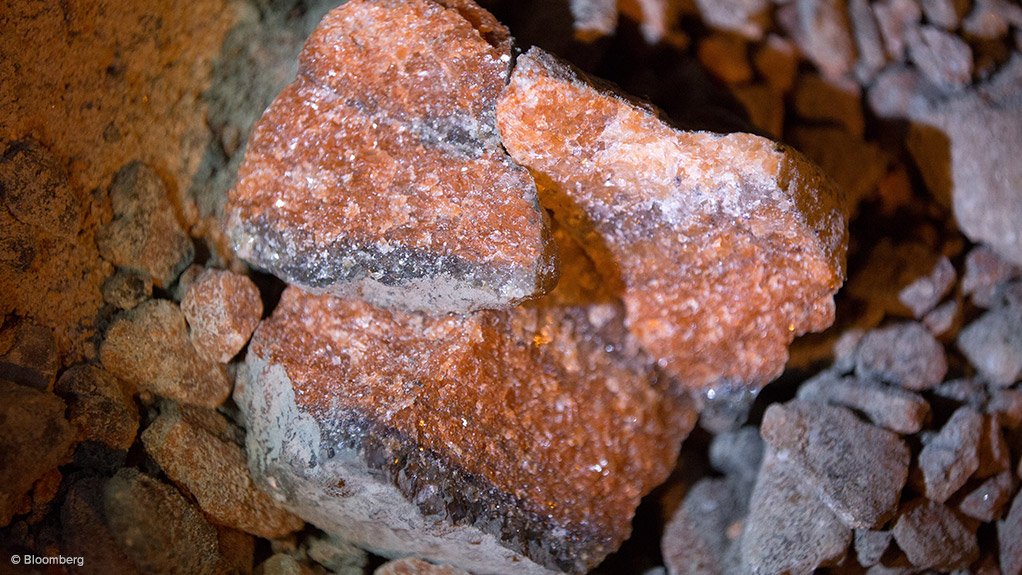
Photo by: Bloomberg
PERTH (miningweekly.com) – A scoping study into the Lake Wells potash project, in Western Australia, has confirmed project economics, owner Australian Potash said.
The scoping study considered the development of a two-staged operation, with Stage 1 producing some 150 000 t/y sulphate of potash (SoP). Stage 2 will see production double to 300 000 t/y SoP, with production to double by the sixth year of operation.
Over its 20-year mine life, the project is expected to generate average yearly operating pre-tax cash flow of some A$118-million, with the scoping study estimating a pre-tax net present value of A$500-million and a pre-tax internal rate of return of 33%.
The Stage 1 development will require a capital investment of A$175-million, while the Stage 2 development will require a further A$163-million investment, with Australian Potash saying on Thursday that the majority of the Stage 2 capital expenditure (capex) would be funded from internal cash flow.
Executive chairperson Matt Shackleton told shareholders that the scoping study showed the Lake Wells project would enjoy considerable production scale, low capex, high margins and a long mine life.
“From initial planned production rates, we have numerous opportunities to expand production capacity to meet growing demand. The project has the right location, the right brine chemistry and the right extraction method of the resource to truly allow for numerous expansion pathways.”
Shackleton noted that the company has also identified numerous potential upside opportunities for the project, which, in turn, allows for the optimisation of fundability and economic returns, and positions Australian Potash well to dominate Australian SoP supply.
“In light of these strong findings, we are commencing optimisation studies before quickly moving to a feasibility study, beginning with building a pilot harvest pond. The optimisation studies and feasibility study will generate strong newsflow over the coming months as we seek to expedite technical studies, funding discussions and project development.”
The feasibility study will get under way in the second quarter of this year.